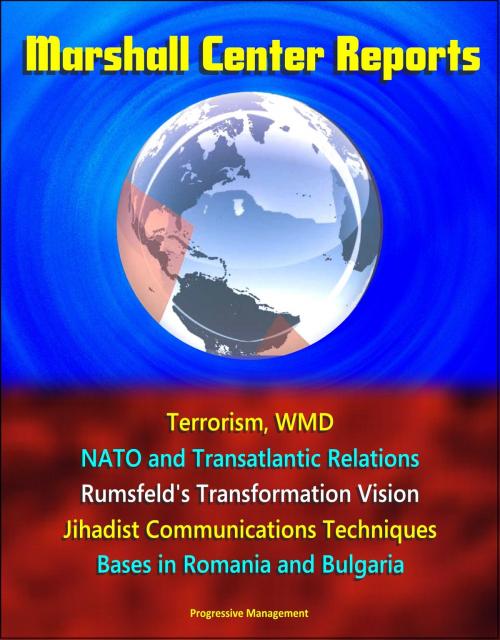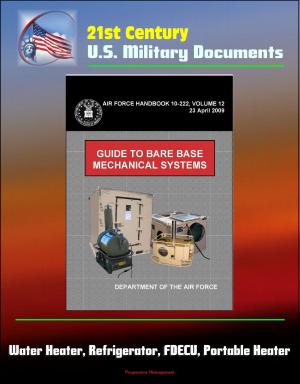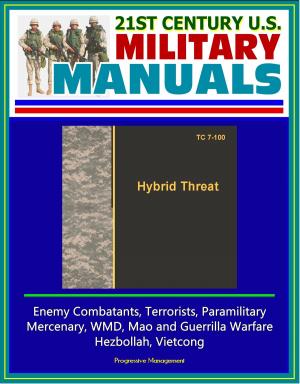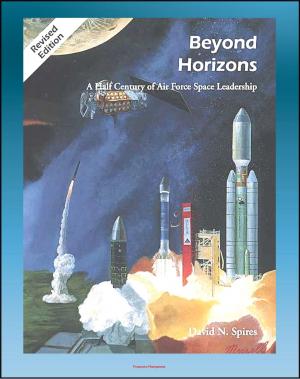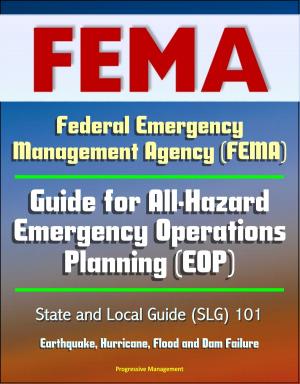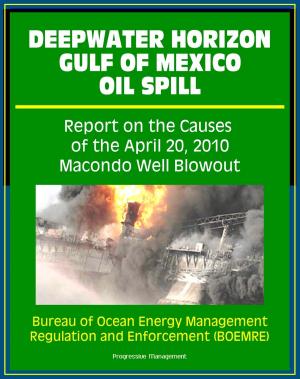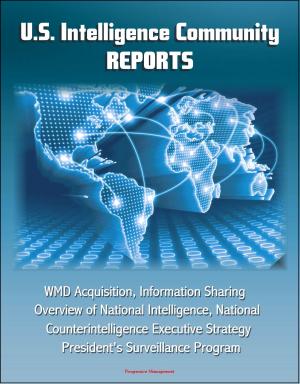Marshall Center Reports: Terrorism, WMD, NATO and Transatlantic Relations, Rumsfeld's Transformation Vision, Jihadist Communications Techniques, Bases in Romania and Bulgaria
Nonfiction, History, Military, United States| Author: | Progressive Management | ISBN: | 9781311488459 |
| Publisher: | Progressive Management | Publication: | April 4, 2014 |
| Imprint: | Smashwords Edition | Language: | English |
| Author: | Progressive Management |
| ISBN: | 9781311488459 |
| Publisher: | Progressive Management |
| Publication: | April 4, 2014 |
| Imprint: | Smashwords Edition |
| Language: | English |
Five informative papers from the Marshall European Center for Security Studies analyze various important military issues:
The EU and U.S. Strategies against Terrorism and Proliferation of WMD: A Comparative Study * This paper is intended to give a comparative analysis of the strategies of U.S. and EU towards two major global security threats - terrorism and the proliferation of WMD. These threats, and especially their coupling, represent the gravest danger for world security in the beginning of the 21st century. With the U.S. and EU being two of the most powerful actors in terms of economic weight, population, political and humanitarian influence, it is especially important to analyze their security strategies and see to what extent they converge/diverge and what future developments could await in the future.
Sword or Ploughshare? New Roles for NATO and the Changing Nature of Transatlantic Relations * NATO's - and also the EU's - further institutional development is of crucial importance in two respects: Firstly, the shape of these institutions reflects the current status of transatlantic relations, and simultaneously has a decisive influence on their future development. In this context, it is especially significant that the U.S. has recently been "evaluating all of the international organizations strictly in accordance with the criterion of their usefulness to its own interests, and has been drastically reducing its commitment when it does not consider these to be guaranteed."
Business as Usual: An Assessment of Donald Rumsfeld's Transformation Vision and Transformation's Prospects for the Future * If Rumsfeld's Transformation is indeed dead, does this mean that Transformation as a greater process is dead as well? Answers to such questions require one to understand first that "Rumsfeld's Transformation Vision" is actually the result of multiple influences that predate his time in office.
Jihadist Terrorist Use of Strategic Communication Management Techniques * Terrorist conflicts have become a worldwide menace. Jihadist terrorism has spread beyond the borders of the regions in which it had its origin and has reached a global dimension. To offset this threat requires knowledge of what motivates, feeds and sanctions jihadist terrorists and their followers. Research and analysis of the root causes and underlying conditions, motivators and enablers of terrorism including the agitation propaganda of jihadist terrorists are vital to shaping appropriate countermeasures to the threat from Islamic terrorism.
Joint Task Force East and Shared Military Basing In Romania and Bulgaria * Joint Task Force East (JTFE), the framework for shared used of select military bases in Romania and Bulgaria, marks a major milestone in America's military presence in Central and Southeast Europe. Following previous, more limited deployments across the region, U.S. forces are poised to become long-term fixtures in both countries under renewable, ten-year agreements signed in late 2005 and early 2006. The arrangements potentially serve as representative models for similar efforts in other countries.
Five informative papers from the Marshall European Center for Security Studies analyze various important military issues:
The EU and U.S. Strategies against Terrorism and Proliferation of WMD: A Comparative Study * This paper is intended to give a comparative analysis of the strategies of U.S. and EU towards two major global security threats - terrorism and the proliferation of WMD. These threats, and especially their coupling, represent the gravest danger for world security in the beginning of the 21st century. With the U.S. and EU being two of the most powerful actors in terms of economic weight, population, political and humanitarian influence, it is especially important to analyze their security strategies and see to what extent they converge/diverge and what future developments could await in the future.
Sword or Ploughshare? New Roles for NATO and the Changing Nature of Transatlantic Relations * NATO's - and also the EU's - further institutional development is of crucial importance in two respects: Firstly, the shape of these institutions reflects the current status of transatlantic relations, and simultaneously has a decisive influence on their future development. In this context, it is especially significant that the U.S. has recently been "evaluating all of the international organizations strictly in accordance with the criterion of their usefulness to its own interests, and has been drastically reducing its commitment when it does not consider these to be guaranteed."
Business as Usual: An Assessment of Donald Rumsfeld's Transformation Vision and Transformation's Prospects for the Future * If Rumsfeld's Transformation is indeed dead, does this mean that Transformation as a greater process is dead as well? Answers to such questions require one to understand first that "Rumsfeld's Transformation Vision" is actually the result of multiple influences that predate his time in office.
Jihadist Terrorist Use of Strategic Communication Management Techniques * Terrorist conflicts have become a worldwide menace. Jihadist terrorism has spread beyond the borders of the regions in which it had its origin and has reached a global dimension. To offset this threat requires knowledge of what motivates, feeds and sanctions jihadist terrorists and their followers. Research and analysis of the root causes and underlying conditions, motivators and enablers of terrorism including the agitation propaganda of jihadist terrorists are vital to shaping appropriate countermeasures to the threat from Islamic terrorism.
Joint Task Force East and Shared Military Basing In Romania and Bulgaria * Joint Task Force East (JTFE), the framework for shared used of select military bases in Romania and Bulgaria, marks a major milestone in America's military presence in Central and Southeast Europe. Following previous, more limited deployments across the region, U.S. forces are poised to become long-term fixtures in both countries under renewable, ten-year agreements signed in late 2005 and early 2006. The arrangements potentially serve as representative models for similar efforts in other countries.
